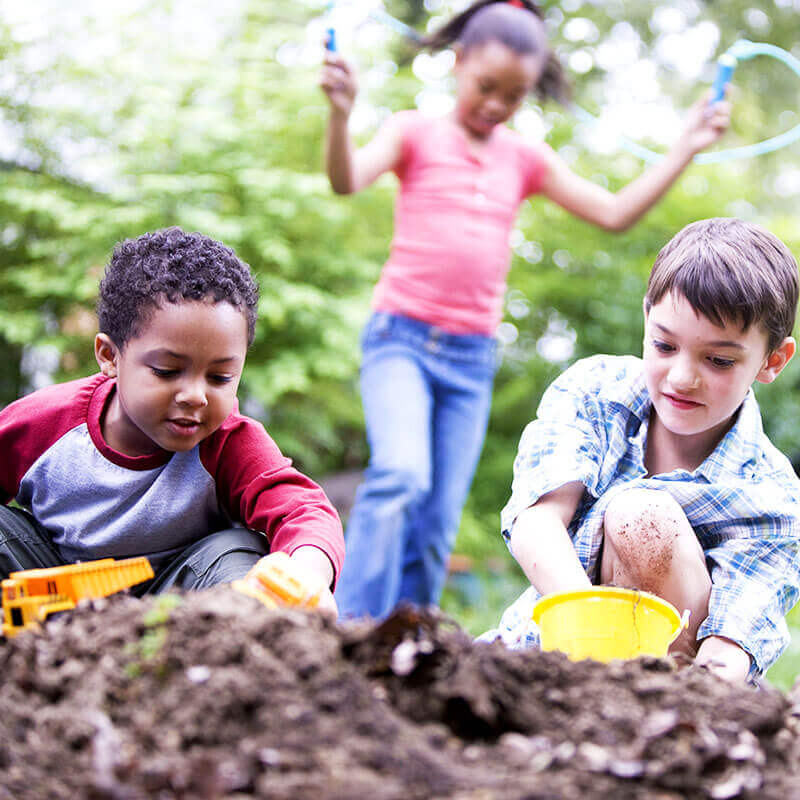In recent years, the concept of play-based learning has gained significant traction among educators and parents alike. Play is not just a source of entertainment for children; it is a vital component of their development. Play-based learning activities can foster creativity, social skills, and cognitive development, making it an essential part of early childhood education.
In this article, we will explore the importance of play-based learning, its benefits, and how it can be effectively integrated into early childhood education programs. By understanding the various facets of this educational approach, we can better appreciate its impact on a child’s holistic development.
What is Play-Based Learning?
Play-based learning is an educational approach that uses play as the primary method for teaching and learning. Unlike traditional education models that focus on structured activities and direct instruction, play-based learning allows children to explore, experiment, and discover at their own pace. This method emphasizes the importance of creative play and encourages children to engage in activities that interest them. It recognizes that children learn best when they are actively involved and enjoying what they do.

Key Elements of Play-Based Learning
- Child-Centered: Activities are designed around the interests and abilities of the child. This ensures that learning is relevant and engaging for each individual.
- Active Learning: Children learn by doing, which helps to reinforce new concepts. Hands-on experiences allow children to make connections between their actions and outcomes.
- Social Interaction: Play often involves interacting with peers, which helps develop social skills. Through collaborative play, children learn essential communication and teamwork skills.
- Exploration and Discovery: Children are encouraged to explore their environment and discover new things. This nurtures their natural curiosity and fosters a love for learning.
Benefits of Play-Based Learning
Cognitive Development
Play-based learning activities stimulate cognitive development by encouraging children to think critically and solve problems. Through play, children learn to make decisions, develop hypotheses, and test their ideas. This type of learning is crucial for developing higher-order thinking skills that are essential for academic success. Furthermore, play-based learning can enhance memory, attention span, and the ability to concentrate on tasks.
Social Skills
One of the most significant benefits of play-based learning is the development of social skills. When children engage in play, they often interact with their peers, which helps them learn to communicate, share, and collaborate. These social interactions are vital for developing empathy and understanding different perspectives. Additionally, play allows children to navigate social norms and build friendships, which are crucial for their social development.
Emotional Development
Play provides a safe space for children to express their emotions and work through their feelings. Through imaginative and creative play, children can explore different roles and scenarios, which helps them understand and manage their emotions better. This emotional exploration is essential for building resilience and emotional intelligence, skills that are important throughout life.
Physical Development
Many play-based learning activities involve physical movement, which is essential for developing fine and gross motor skills. Activities like building with blocks, drawing, and playing sports help children improve their coordination and physical fitness. Regular physical activity through play also promotes overall health and well-being, contributing to a balanced lifestyle.
Implementing Play-Based Learning in Early Childhood Education
Creating a Play-Based Learning Environment
To effectively implement play-based learning, it is crucial to create an environment that encourages exploration and discovery. Classrooms should be equipped with various materials and resources that stimulate curiosity and creativity. This can include building blocks, art supplies, musical instruments, and outdoor play equipment. An inviting and well-organized space makes it easier for children to engage in play and learning activities.
Teacher’s Role in Play-Based Learning
Teachers play a critical role in facilitating play-based learning. Rather than directing activities, teachers should act as guides and observers, providing support and resources as needed. They should also create an inclusive environment where all children feel comfortable expressing themselves and exploring their interests. Teachers can also model positive behaviors and interactions, guiding children in their social and emotional development.
Integrating Play-Based Learning with Curriculum
While play-based learning emphasizes child-led activities, it can still be integrated with a structured curriculum. Teachers can design activities that align with educational goals and learning outcomes. For example, a science lesson on plant growth can be turned into a gardening activity where children plant seeds and observe their growth over time. This approach ensures that play-based activities are purposeful and contribute to academic learning objectives.
Assessing Play-Based Learning
Assessing play-based learning can be challenging, as it does not always produce tangible outputs like traditional education methods. However, teachers can use observational assessments to evaluate children’s development and learning progress. Keeping anecdotal records and using checklists can help track children’s growth in various domains, such as cognitive, social, and emotional development. These assessments provide valuable insights into each child’s unique learning journey.

Challenges and Solutions in Play-Based Learning
Common Challenges
Implementing play-based learning can come with its own set of challenges. Some of these include:
- Lack of Resources: Not all educational institutions have the resources to create a fully equipped play-based learning environment. Limited budgets can make it difficult to acquire necessary materials.
- Parental Concerns: Some parents may be skeptical about the effectiveness of play-based learning and may prefer more traditional methods. They might worry that play-based learning lacks the rigor needed for academic success.
- Balancing Play and Curriculum: Finding the right balance between play-based activities and meeting curriculum standards can be difficult. Educators may struggle to ensure that all educational goals are met through play.
Solutions
- Resource Allocation: Schools can prioritize essential resources and seek community support or grants to fund play-based learning materials. Creative solutions, such as recycling materials for play, can also be effective.
- Parental Involvement: Educators can organize workshops and information sessions to educate parents about the benefits of play-based learning and how it supports their child’s development. Open communication with parents can build trust and understanding.
- Integrated Approach: Teachers can design activities that meet curriculum standards while still allowing for creative and exploratory play. This ensures that educational objectives are achieved without compromising the integrity of play-based learning.
Real-World Examples of Play-Based Learning
Reggio Emilia Approach
The Reggio Emilia approach is an educational philosophy that emphasizes the importance of play and exploration. Originating in Italy, this approach encourages children to take an active role in their learning, with teachers acting as co-learners and guides. The Reggio Emilia approach is known for its focus on creativity, critical thinking, and social collaboration. It values the child’s voice and encourages documentation of their learning processes.
Montessori Method
The Montessori method, developed by Dr. Maria Montessori, is another well-known approach that incorporates play-based learning. Montessori classrooms are designed to encourage independence and self-directed learning. Children are free to choose activities that interest them, and teachers provide guidance and support as needed. This method fosters autonomy and helps children develop a sense of responsibility and initiative.
Conclusion
Play-based learning is a powerful and effective approach to early childhood education. By allowing children to explore, experiment, and discover through play, we can foster their cognitive, social, emotional, and physical development. While there may be challenges in implementing play-based learning, the benefits far outweigh the obstacles. By creating a supportive environment and integrating play with educational goals, we can help children develop a lifelong love of learning.
Incorporating play-based learning into early childhood education is not just a trend; it is a necessity for fostering well-rounded, happy, and successful individuals. This approach lays the foundation for a positive and enriching educational experience that supports all aspects of a child’s growth and development.
Call to Action
If you’re interested in incorporating play-based learning into your child’s educational journey, we invite you to contact the Discovery Time Learning Center today. Our dedicated team is eager to provide you with more information about our programs and how we can support your child’s growth through engaging, hands-on learning experiences. Together, we can nurture a love of learning that will last a lifetime. Reach out to us any time, and start the journey towards a brighter future for your child!



